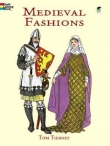
Текст книги "The Book of Q"
Автор книги: Jonathan Rabb
Жанр:
Триллеры
сообщить о нарушении
Текущая страница: 17 (всего у книги 28 страниц)
His first thought was the Austrian. It had been five days, ample time to grow impatient. Pearse had to believe that they still needed Angeli whether they’d pinpointed his location or not. Finding him-Men-dravic’s call to Rome, his search for a missing priest in a refugee camp, had seen to that-was only half the battle. They still needed something to keep him in line. He was praying that their hook remained Cecilia Angeli.
Then again, maybe the Greeks had gotten lucky? The discovery of Andrakos’s car, the connection between Blace and Kukes?
Whoever they were, Pearse knew he needed to get a good look at them before they him. Sizing up his options, he quickly crossed the mud path and slipped into a tent three down from his own. At once, a line of familiar faces peered up at him, four women ranging in age from eleven to sixty, a boy of four, a man in his seventies.
Before any of them could ask, Pearse brought a finger to his lips. Silence. They had learned to appreciate its power early on in the war, hiding in basements, attics, waiting for the Serb patrols to loot and move on. A single gesture was all they required. Pearse nodded, then turned to peek through the crack in the flap.
Less than a minute later, he spotted them, conspicuous by their clothes, more so by their attitudes, four men who, from their expressions, had only recently entered a war zone, each trying his best not to show too great an aversion to the filth and disarray. Dressed in field khakis, windbreakers, and mountain boots-a muted yellow, tied halfway up the calf-they could easily have passed for members of a weekend climbing club, save, of course, for their physiques. Each stood at least six two, rigidly straight posture, broad shoulders, thick, powerful forearms. Everything about them screamed military. And yet, unlike their comrades in Rome, these men from the Vatican displayed none of the swagger Pearse had witnessed the first time around. Instead, they seemed far more … humane. It was the only way he could think to describe them. Even as they split up to take positions around his original tent, they indulged in none of the commandolike gesticulating he expected. One at the rear, one ten yards to the south, one ten yards to the north. Coordinated and precise.
With a nod, the fourth man entered the tent.
He reemerged a minute later with one of Pearse’s former tent mates in tow: Achif Dema, the barber who had set up shop under a nearby tarp, the man who had accepted Pearse’s jacket as a farewell gift. The obvious choice for consultation. Dema shook his head several times, pointing off in the direction of the medical tents, hands waving in a series of convoluted gestures, all accepted with an easy smile from the Vatican man. He knew exactly what the refugee was doing, or at least trying to do. A wild-goose chase for an inquisitive stranger. It might have done the trick had Mendravic not chosen that moment to return.
Dema, no actor to begin with, could hardly contain his reaction; at once, Mendravic became everyone’s focus. Dressed as he was, he had no chance of passing for a fellow refugee, a fact not lost on the men. As one, they began to circle in-subtly, but again with a precision that bespoke a familiarity with such situations. Pearse was left to observe as the strange dance played itself out.
Luckily, Mendravic knew his way around the floor, as well. Pearse watched as his old friend moved along the path, his eyes aimed at the ground-seemingly oblivious-but with an intensity that indicated a plan of attack already in the making. As he drew to within earshot of Pearse’s hiding place, he began to scratch his cheek. At the same time, and without breaking stride, he whispered under his breath:
“Wait for them to follow me. Meet at the north gate.”
Pearse had no idea how Mendravic had known he was inside the tent. Nor did he have time to digest the information. Within seconds, Mendravic was springing to his left, a wild-bear version of the boy who had darted through the tents only minutes before. Instantly, the men from the Vatican raced after him.
Except for the one who stood by Dema. He remained perfectly still, only his head moving in a slow rotation, scanning the line of tents with great concentration.
His eyes came to rest on Pearse’s. And he began to walk.
If faith required confrontation, Pearse knew he was about to enter a state of grace. The man quickened his pace. Pearse felt his heart accelerate, a sudden pounding in his throat. He had no choice but to go. Pulling the flap back, he bolted out-an instant of recognition from the Vatican man, Pearse ducking to his right through the web of rope lines.
The sound of pursuit was immediate. Forcing it from his mind, he began to weave his way through the tents, his head still groggy, his body crouched so as to avoid the lines, more so to gain as much shielding from the low canvas walls as he could. His eyes swept along the ground, never more than two, three feet in front of him, hunting for stakes, ruts, anything that might trip him up. Wherever the path grew wide enough, small gatherings of people appeared, obstacles to be run over and through. Their curses trailed after him, each a sonar’s ping to trace his escape. A second wave always followed-the advent of his pursuer-the surest means of measuring the distance between them. The echoes were coming quicker and quicker.
Pearse did his best to keep himself moving northward in the hope of finding the gate. Several minutes in, he became acutely aware of a sudden shift in the air, a familiar sweetness, somehow lighter, the moment before deluge, when sky and earth darken under sooted clouds, a breathless hint of the coolness to come. He could almost taste the breeze as the sky began to open up, first gentle, then pail after pail of water, the sudden patter of clapping mud, Pearse drenched in seconds. The timpani of rain on canvas propelled him from tent to tent. All sound seemed to vanish, no sense for anything or anyone behind him, only his tiny bubble world shaped by the relentless barrage.
Underfoot, the ground grew slick with incredible speed, tiny inlets seeking out the low ground, rutted tracks from carts and trucks providing the network of conduits. Above, the clouds pressed farther down, a porous gray plummeting the afternoon into premature twilight. He had no idea how far he had ferreted his way into the confusion of tents, hardly willing to take his focus from the ground so as to gain his bearings. Instead, he continued to run, no chance at even a quick look back to see how close his assailant had drawn. The rope lines, once obstacles, now kept him upright, his hands sliding along the slick fiber in an attempt to maintain his balance, one narrow path to the next, improvised benches and chairs upended along the way as he raced by them.
Minute passed into minute-the gate nowhere in sight-his lungs and muscles starting to give out, his head beginning to pound, a burning in his throat, no amount of adrenaline able to stifle its hold. He tried to push himself on, but his chest began to constrict, his sides cramping. Shooting a glance over his shoulder, he fully expected to see the large man barreling toward him.
The path stood empty.
Amazed, Pearse slowed, then stopped. Slouched over, hands on his knees, he sucked in air, rain cascading through his hair, thick drops streaking down his face. He wiped them away. Again he turned, certain that the rain had somehow distorted his vision, the man only feet from him. Nothing. A flare of lightning illuminating the area, confirmation that he was alone. Not quite believing his luck, he stood upright, still breathing heavily, the pain subsiding, an uncontrollable grin spreading across his lips. He had lost him. With a sudden surge of confidence, he turned around, hoping to get a better sense of where he had brought himself.
His legs nearly buckled when, no more than thirty yards in front of him, he saw the man now propelling himself forward from rope line to rope line, knees brought high with each powerful thrust, the mud below no deterrent to the strangely mechanical leaping. Somehow, he had made his way around, anticipating Pearse’s movements and positioning himself to cut him off. To the peal of thunder, Pearse swung around, too quick for his own footing, a hand to the ground as he began to tumble headfirst, trying to push himself forward, the boy’s shoes no match for the sludge. He looked back for only an instant, a nightmare sensation, his own legs unable to move, his body in the grasp of the mud, his hands clawing to get himself to his feet. He lunged for the nearest line, hoisting himself up, the first hint of racing steps behind beginning to break through the rain’s compulsive beat.
With the sound of the man’s breath closing in, Pearse turned, catching sight of a pair of crystal blue eyes no more than fifteen feet from him. Their stare, however, exhibited none of the menace Pearse had conjured in his own mind. In fact, the man seemed to be slowing, his arms at his sides, a pose to pacify, not to intimidate. Strangely unnerving.
The image lasted less than a second.
From somewhere off to his right, a figure sprang out in a blur of movement, hands latching onto the man’s chest, plunging him into the side of a nearby tent, spikes jerked from the ground, bodies trapped within the deflating canvas.
It was then that Pearse recognized Mendravic, now pulling the man upright and driving his knee into an unsuspecting groin. At once, the man doubled over, his head easy prey for a second assault. Mendravic swung his knee up, this time into the man’s skull, the neck snapping back, the body instantly crumbling to the ground.
It had taken less than ten seconds. Pearse stared in astonishment.
Mendravic stooped down to check the man for papers. Finding none, he stepped toward Pearse and pulled him to his feet. “Don’t worry,” he said, yelling to him over the rain. “He’ll be up and about in twenty minutes. He’ll just have a very bad headache for a day or so. You know what that’s like, don’t you?”
Pearse was still unsure what had just happened. “Where did you come from?” he yelled back.
Mendravic led him to the spot from which he had just leapt, then pointed through the tangle of ropes. Remarkably, the north gate stood some forty yards from them, two cement block hovels on either side, checkpoint stations for those coming and going. An odd collection of trucks and vans sat parked around the open expanse, two Albanian guards in rain gear monitoring the area, their chosen perch the back of one of the larger trucks, shelter against the rain, rifles resting at their sides. Not exactly the most taxing duty in camp. Probably another two or three men inside the buildings. Pearse couldn’t quite believe his luck at having gotten this close to the gate.
“I was here a minute, maybe two, before you,” Mendravic yelled. “That’s when I saw your head pop up, then the other one. Him,” he said, pointing at the unconscious body. “At least I thought it was you.” He started to make his way to the gate.
“And the other three?” Pearse asked, following.
“The rain helped.” Mendravic seemed content to leave it at that. Pearse saw no reason to press for details.
As they moved into the opening, one of the Albanians jumped down from his perch. His smile made it clear that he and Mendravic had already done business. “He needs another two hundred dollars,” Mendravic said under his breath. “I assumed you’d have it.”
Pearse reached for the backpack, evidently too quickly for both soldiers. The one still in the truck reached for his rifle. The one moving toward them stopped, his smile gone. Mendravic raised his hands, a wide smile on his face; Pearse did the same. When they had drawn to within a few feet of the man, Mendravic began to speak in a cordial Albanian.
“My friend,” he said, his hands now extended, “he’s just getting the rest of your money. What did we say? One hundred American?”
“Two hundred,” answered the man.
“Of course. Two hundred.”
The guard’s smile returned.
Pearse nodded slowly, as if to ask permission to open the backpack. The soldier motioned to his friend in the truck. The rifle returned to its resting place. Careful to bring out only the necessary bills, Pearse handed them to Mendravic who then handed them to the guard. After a quick count of the money, the man nodded again to his friend. He then waved for Pearse and Mendravic to follow him outside the gate.
A few hundred feet on, they arrived at the edge of a thickly wooded area. The guard pulled a flashlight from his jacket and let the thin beam cut across the rain-soaked bark of the trees. He found what he was looking for some fifty feet farther on, a virtually hidden path, but one with which the man was clearly familiar. It was nearly a quarter of a mile before they came to a small glade, a pair of run-down delivery vans-the small European kind, little more than a car with extended cab at the back, two cramped seats up front-standing side by side. Pearse guessed they had been “procured” from the streets of Pec or Prizren in the last two days, a cottage industry for the guards and any refugees willing to pay. Four hundred dollars seemed reasonable enough for an American priest and his Croatian friend. No doubt, the price varied considerably depending on the clientele. The guards had done well today.
“You’ve enough petrol to get you to Shkoder,” the man said pointing to the van on the right. “There’s a map inside. And some towels.” He smiled. “Don’t say you didn’t get your money’s worth.” He started back, shouting over his shoulder as he walked. “And don’t worry. The car won’t have any trouble at the Yugoslav border.”
Mendravic fired up the engine, doing his best to maneuver the van through the mud and roots, the rain pounding at the roof in a snare-drum frenzy. Pearse had squeezed the pack between them and was now making the most of the “towels”-ratty little handkerchiefs on a good day-to dry himself off and to clear the windshield, which had quickly fogged over. Mendravic pressed one of the tiny rags through his hair as he tried to jump-release the clutch so as to gain some added traction. It was several minutes before the bumps and jolts of the wooded floor gave way to something resembling a road.
Cranking his window open to combat the mist, Mendravic yelled to Pearse over the din. “So, who exactly are we running from?”
Not that difficult a question, thought Pearse, even if he was having trouble explaining the man’s strangely nonaggressive attitude just prior to Mendravic’s intervention. None of the swagger. None of the menace. Still … “How does Vatican security strike you?” He began to fiddle with the knobs on the dashboard in an attempt to get some air onto the windshield.
Mendravic glanced at him quickly. “What?”
“I’d need a phone to make sure,” answered Pearse, the knobs quickly proving useless; he sat back and stared out at the empty horizon. “So unless we happen to pass a McDonald’s somewhere out here, you’ll have to settle for a best guess.”
“I’m not much for fast food,” said Mendravic, reaching into his jacket pocket and pulling out a tiny cellular phone. “Probably could have traded it for one of those NATO trucks back there. Maybe two.” With one eye on the road, he flipped it open and pressed several buttons. “I piggyback onto the NATO satellite linkups from time to time.” He handed it to Pearse. “Just enter the number.”
Pearse knew he shouldn’t have been surprised. Doing as he was told, he fished a piece of paper from his pocket. “By the way,” he asked as he dialed, “how did you know I was in that tent?”
Mendravic laughed to himself. “Next time, keep your fingers inside the flap, not outside.”
Angeli’s machine picked up, her message brief. A trip to Paris. Research. She’d be back in a week. “It’s Ian Pearse-”
The machine disengaged. “Do you have the ‘Hodoporia’?”
Pearse didn’t recognize the voice. “Let me speak with the professor.”
“Do you have the ‘Hodoporia’?” Pearse remained silent. It was several moments before the question came again.
“Have you found what they want?” Tired, clearly frightened, it was Angeli.
“Thank God,” said Pearse. “Are you all right?”
“I’ve been better. They want to know if you have the parchment.”
“I will. Soon. Have they-”
“ Howsoon, Father?” The man was back on the line.
“Put her on the phone.” This time, it was the other end that chose not to answer. “It’ll take a lot longer if you keep sending people out after me.”
There was a momentary pause. “Say again.”
“The four men you sent to find me in Kukes,” Pearse answered. “They didn’t get what they came for.”
Another pause, then the sound of muffled conversation in the background. Pearse thought he heard a second phone dialing. It was nearly a minute before the man answered. “Describe these men.”
The tone on the line spoke volumes. The men in Rome were as much in the dark about his recent assailants as he was. They had sent no one.
No swagger. No menace. No Vatican.
The question remained: Where had they come from? And who had sent them?
“Describe them,” came the repeated order.
Pearse waited. “Keep the professor safe.” He then pulled the phone from his ear and flipped it shut. He handed it to Mendravic.
“So?” he asked.
Pearse let his head fall back, the pounding subsiding. “Not the best guess.”
It was after seven by the time the limousine deposited Ludovisi back on Via Condotti, his steps unsteady-to anyone nearby, a man clearly worse for the wine. The street had mellowed since his hasty departure, strings of multicolored Christmas lights hanging overhead to lend the place a kind of festival atmosphere. The sneers of boutiques had given way to the clownish smiles of gelato carts and rose stands, as always, the strains of an ill-tuned guitar echoing from somewhere on the Spanish Steps. Ludovisi noticed none of it, clumsily maneuvering himself through the crowd, the outer rim of the piazza fountain a welcome relief as he stumbled his way down to it and sat. Staring into the gurgling water, he tried to shake the haze from his head, unable to recall the last three hours with any precision.
As far as he could remember, the evening had begun in silence, Kleist stone-faced to his questions, their destination kept hidden behind windows tinted to the point of impenetrability, only the car’s speed-too fast for the city streets-giving anything away. Somewhere on the outskirts of town. A villa perhaps. Kleist had finally offered him a drink-in the car, at the villa-he couldn’t remember. Brandy, scotch, it made no difference now. The light-headedness had followed. He recalled something of an underground garage, a set of stairs, a rather grand library.
Once inside, they had thrown a barrage of papers at him, some to be signed, others simply to be held, each immediately retrieved by Kleist. Computer discs, as well. Endless questions about account numbers, funds deposited, all of it streaming by in an ever-growing fog.
By the time they had taken him back to the garage, he’d required a man on either side to help him down the stairs. The ride back to town had passed in a disjointed series of words and faces.
With a sudden spasm, he dropped his head between his knees and vomited. It only made his head ache all the more. A second wave followed, most passersby moving off as quickly as possible, one or two trying to offer some help, a collision of voices and hands swimming in slow motion in front of him. Ignoring them, he reached into his jacket pocket for a handkerchief to wipe his mouth; instead, he pulled out two cards, identical to the ones he had tossed from the window at 201. He stared down at them, unable to gain his focus. I … destroyed these. And yet here they were, whole. What the hell is going on?Nausea gave way to fear.
Without warning, the left side of his neck constricted, a sudden twinge in his arm. At the same moment, his head began to convulse, more of the vomit curling up through his throat, his body slumping to the cold stone below. Somewhere within the pain, he heard shouts, whistling. Nothing registered, his body no longer his to control.
By the time the ambulance arrived, Arturo Ludovisi had been dead for over six minutes, the cards still clutched in his hand.
Shkoder came and went with a quick stop for gas, no letup in the rain, the car managing the border just as the guard had promised. The various passports and transit cards Mendravic had produced hadn’t hurt their chances, either-Albanian migrant-worker ID required no pictures.
“So this book, the one in Visegrad, it will do what for them?” asked Mendravic, still trying to piece things together.
“Not really sure,” answered Pearse, his attention on the final quintet of the Ribadeneyra entries. He’d been struggling with them for over an hour. “Whatever it’s supposed to do for them, they’re very eager to get their hands on it.”
“And what you’re doing there”-Mendravic nodded toward the small black book-“that’s going to tell us where we go?”
Pearse hummed in response, not really having heard the question. He continued to stare at the words, bits and pieces he had scribbled on the page, countless little circles of crossed-out letters, words on top of words, side by side in odd configurations.
It hadn’t taken him long to realize that Ribadeneyra’s “quaestio lusoria”was far more complex than simply a series of arcane anagrams. His first stab at entry number two, during his second night at Kukes, had made that clear. There had been nothing to it that even remotely hinted at an anagram. The same held true for numbers three through five, each of them either too long or too short to make even the most subtle reconfigurations provide an answer. It was only when he had moved on to number six that he’d seen the pattern. Here, again, was an intricate yet solvable anagram. Seven through ten, impenetrable. Eleven, doable. Every fifth one. It had suddenly dawned on him what he was looking at. As with the “Perfect Light” letters, the entries here held to the Manichaeans’ predilection for divisions within divisions, and always in sets of five. In the scroll, it had been through the prophetic ascents; here, Ribadeneyra had managed it through the distinct types of wordplay. Five categories, five of each kind. The question remained: Aside from the anagrams, what sorts of manipulations would the other four categories require?
It had struck him that, perhaps, there was a simple way to find out. Stealing a few minutes on one of the camp’s computers, he’d quietly scanned the Internet for anything on cryptogrammics. Not the most detailed or accurate source, but at least something to give the hunt direction. The result: long, drawn-out lists on the various forms of modern cryptic wordplay, far more than the five categories he was looking for. Procedures called “deletions,” “reversals,” “charades,” and “containers” dominated, each with a quick explanation and an equally simplistic example. Tools for the elite crossword fanatic. The “quaestio lusoria”had clearly come a long way in four centuries. Pearse wondered how many of its modern enthusiasts understood its darker history.
Back in his tent, he had discovered that the two-line (as he had come to refer to those entries in the same category as number two) resembled a charade, albeit in a slightly less straightforward form. The modern version, according to the Internet, required the solver to break the answer into several words, each defined independently: syllables, as it were, of the final charade. For example, “sharpen the pen for truth” had produced the answer “honesty.” The derivation:
hone (sharpen) + sty (pen) = honesty (truth)
A one-to-one relationship. Ribadeneyra had relied on more obscure references, some using only partial words, but all creating longer sequences between the clues and their combining forms, especially when the answer was a phrase rather than a single word. In all cases, though, they required a very creative understanding of a given definition.
To make things even more difficult, Ribadeneyra had rarely chosen to include the answer as part of the clue; he offered no phrases such as “for truth” to hint at the solution. One of his more vexing had read:
Ab initio, surgunt muti in herbam.
Loosely translated:
From the beginning, they rise without speaking into the grass.
Strange as it sounded, it made perfect sense, given the Manichaean influence. In fact, the real mark of Ribadeneyra’s genius was his ability to construct entries that revolved around references to those things that could help set the light free: “rising,” “fruits,” “herbs.”
The answer, Pearse discovered, was “deversoriolum,”the Latin word for “inn.” The derivation had gone quite easily at the start:
DE= from
VER= the beginning (the Latin for the season spring, the beginning of all things)
OLUM= into the vegetable (the accusative form of the word herb, olus, thus olum)
But what of “sori,”stuck in the middle? Here was where Ribadeneyra had shown his special gift (the kindest way Pearse could think to put it). After too many hours tossing the clue around in his head, Pearse had realized that the verb “to rise”-here “surgere”-could be replaced with the Latin sororio(“to swell,” primarily as with milk in a mother’s breast, another appropriate choice, given the metaphor of beginnings and birth). In conjunction with the second-to-last part of the clue, “muti”(“without speaking”), he saw he needed to remove the Latin word for “to speak” (“oro”), so as to make the combining form, literally, “speechless.” Removing “oro”from “sororio”(with a little tweak) left “sori.”Hence:
De – ver – sori – olum
A lot of work for a three-letter answer.
So it had gone with the three– and four-lines, each a more opaque version of a modern cryptogram, naturally made more difficult by the interplay of Greek and Latin references. The three-line had worked primarily with deletions-single or double letters removed from one word to create another. The Internet example, “headless trident bears fruit,” had given the answer “pear.” The derivation:
spear (trident)? s(its “head”) = pear (fruit)
The most direct of all the categories.
The four-line, however, had proved the most difficult, combining elements from the other three to create the longest phrases. For example, to unearth just the single word “pons”(meaning “bridge”) in one of the answers, he’d had to take the word “pomus”(meaning “fruit tree”), eliminate “the Greek Medusa” and replace it with the “the Roman Neptune.” Here, “the Greek Medusa” had signified the letter Mu-the Greek for M, the first letter in Medusa; “the Roman Neptune” had implied the letter n. Replace muin “pomus”with n, and you have “pons”-“bridge.”
Granted, the gnosis here wasn’t quite as deviously hidden as with the “Perfect Light”-no letters and cross-references to construct the map. Then again, the earlier Manichaeans had had five centuries to devise their puzzle. Ribadeneyra had taken a few months. An effort certainly worthy of their legacy.
Pearse quickly came to appreciate the beauty of the game, its precision. Everything was there from the start, no landmarks to be found, no mechanisms to be unhinged. A genuine alchemy, the gold trapped within the obscurity of a language waiting for release. A strange taste of the Sola Scriptura. Discovery in its purest form.
Pearse knew Angeli would have needed, at most, a few hours for the entire lot; he had taken the better part of four days. Even when helping with the refugees, he’d been aware that his subconscious was continuing to play with the clues, flashes of understanding bubbling to the surface at the strangest of moments, often a word or two in conversation enough to spark revelation. Though frustrating at times, the process nevertheless gave him a real sense of satisfaction, each of the entries offering up tiny moments of triumph. Given the mayhem of the last week, such fleeting brushes with resolution were deeply rewarding.
Still, he had yet to penetrate even one of the five-line entries, none of them coming close to anything he had seen on the computer. More than that, he had come to recognize that the last of the categories held the key to the entire puzzle. As with the acrostics, the rest remained meaningless-a mishmash of abstract phrases and words-without something to tie them together. With “Perfect Light,” it had been the prophetic letters. Here, it was the five-line entries. Another map waiting to be discovered.
An image of Angeli came to mind, her plump little hand sweeping along the sheets of yellow paper, eyes staring up at him, so eager for him to see what she herself had already detected. The elation at her discovery. Her impatience with his thickheadedness.
He couldn’t afford to keep her waiting too much longer.
At this rate, though, he had little to bolster his confidence. He had no idea as to what would help to unlock the last of the entries. He needed to clear his mind. More than that, his eyes needed a rest. The vibration from the van was hardly making the reading easy, his head still battling the last vestiges of the concussion.
He flicked off the flashlight, let the paper drop to his lap, and set his head back against the seat. After a few minutes-eyes gazing out at the blackened landscape-he said, “You’re wrong, you know.”
Not sure what Pearse was referring to, Mendravic remained silent.
“About your friends in the KLA,” he clarified.
“Ah.” Mendravic kept his eyes on the road. A return to the conversation they’d started over two hours ago.
“They’re as much to blame for the refugees now as the Serbs were a year ago.” Pearse continued to stare out.
“Five days in the region and you’re an expert.”
“They’re a bunch of thugs, Irish Provisionals, Kosovo-style. Except maybe a little more brutal.”
“I see.” Mendravic nodded to himself. “I’ve always had trouble distinguishing Milosevic from Tony Blair.” Before Pearse could respond, he said, “A year after a peace accord, and the Serbs are still ‘encouraging’ people not to return home. I don’t say I agree with everything the KLA does, but at least they’re doing something.”








